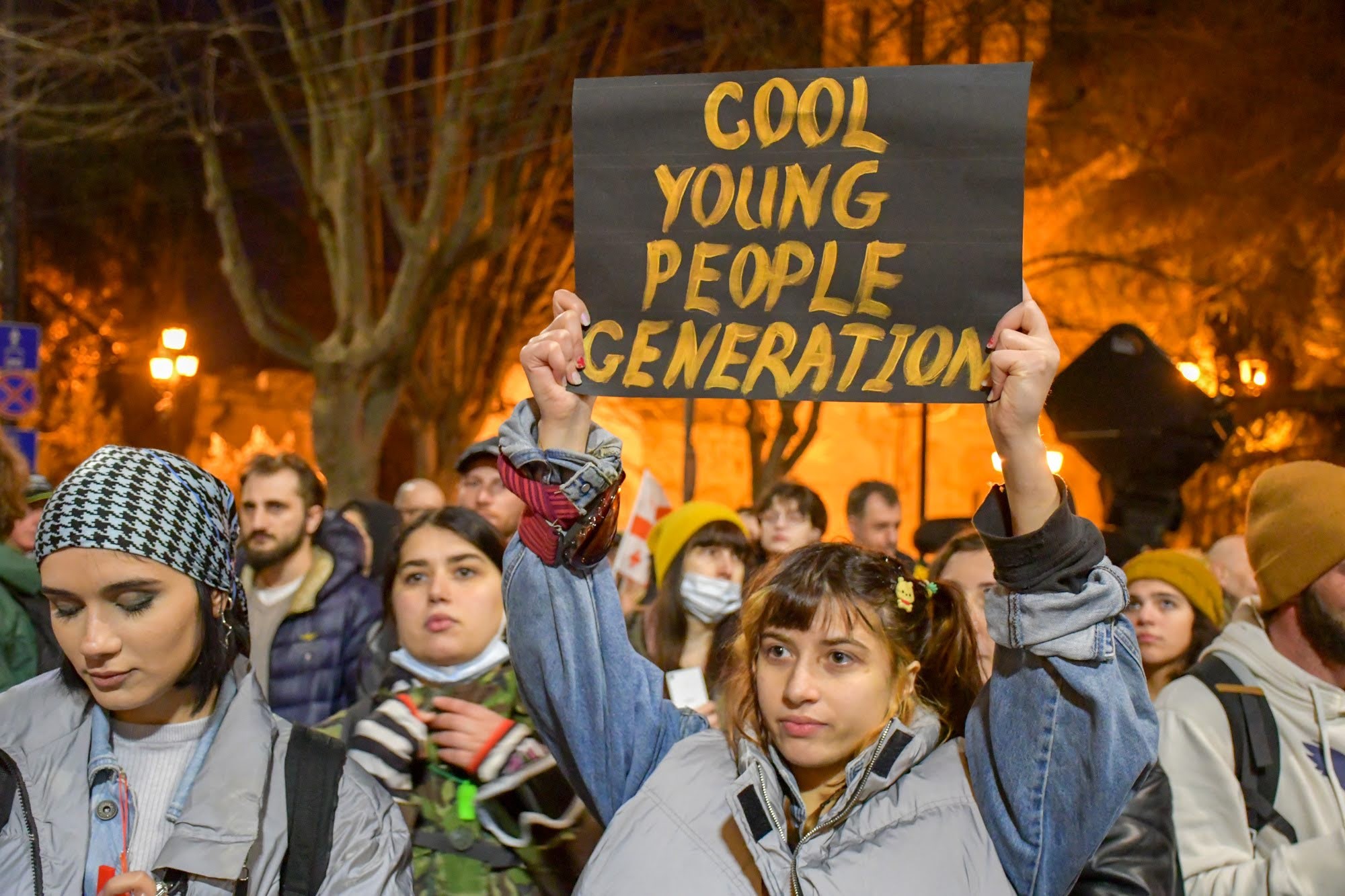
Sassy posters, raving to sirens, dancing with water jets, and barricades made of scooters; these have become some of the symbols of the demonstrations that defeated Georgia’s foreign agent bills — and symbols of Generation Z’s entrance into politics.
‘This protest was different; there was more humour in it’, says 21-year-old Anastasia Pirtskhalaishvili.
Pirtskhalaishvili was among thousands of young people who took to the streets in early March, after the ruling party passed the foreign agent bill in its first reading. Images of young people like her standing unflinchingly against water cannons, wearing diving masks, face masks, and scarfs to protect from pepper spray and tear gas, or dancing as the riot police advance, have spread widely online.
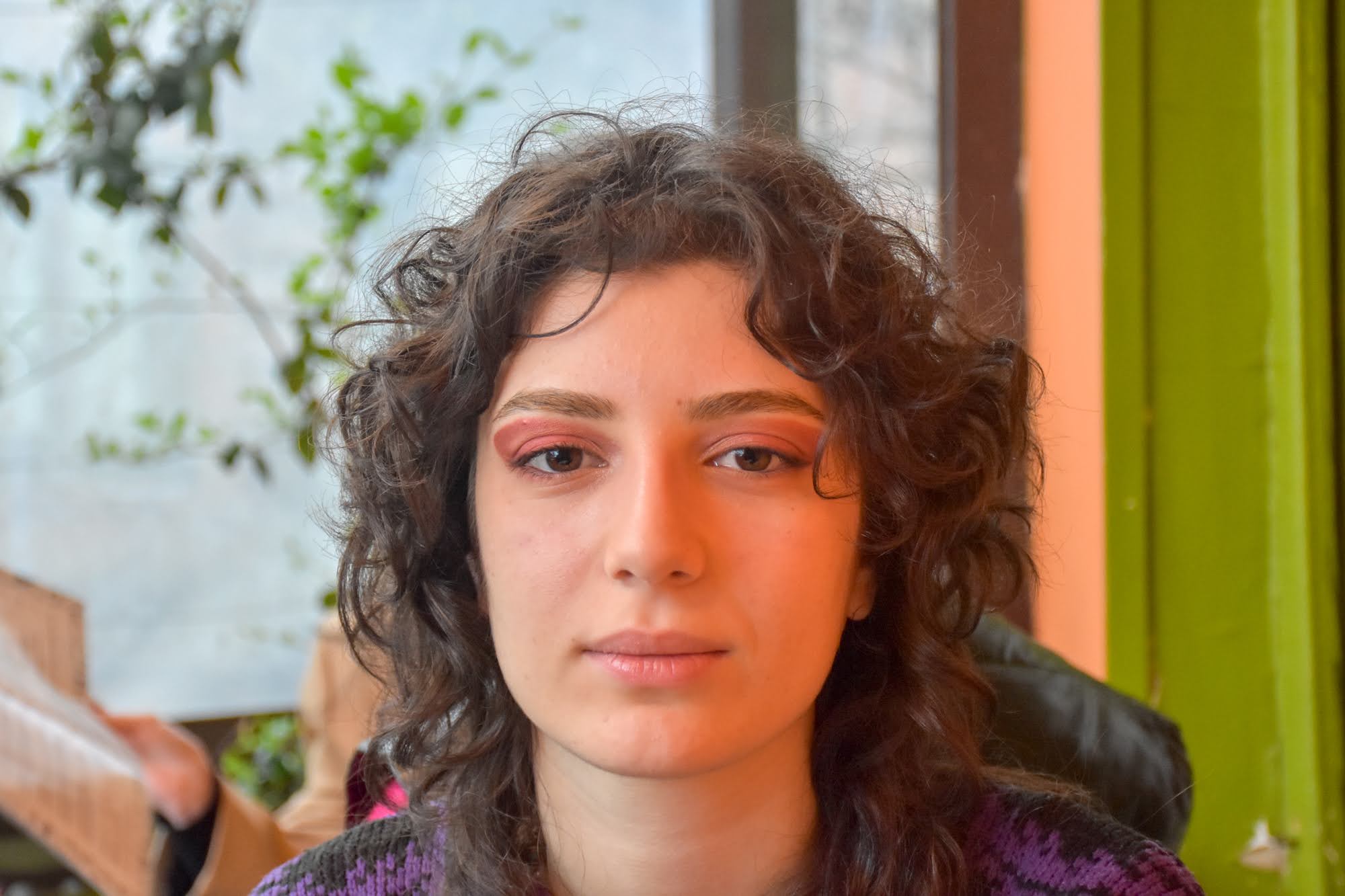
But despite the playfulness of some of their protest, Pirtskhalaishvili says young people were sending a serious message.
‘Dancing to the background of the sirens was also to demonstrate that we are not afraid and we can overcome this.’
People dance in the early hours of 9 March, as sound cannons intended to disperse the crowds ring around them. Video: Mariam Nikuradze/OC Media.
Pirtskhalaishvili was standing opposite parliament on 7 March as part of a largely peaceful protest. Still, she did not escape either the tear gas or arrest.
‘Twice they dispersed people, and both times we returned to the area in front of the Parliament, but so much gas was released that my throat burned terribly’, she recalls. ‘I was standing on the side of a peaceful demonstration and shouting with others when two policemen snuck up behind me and arrested two of my friends and me’.
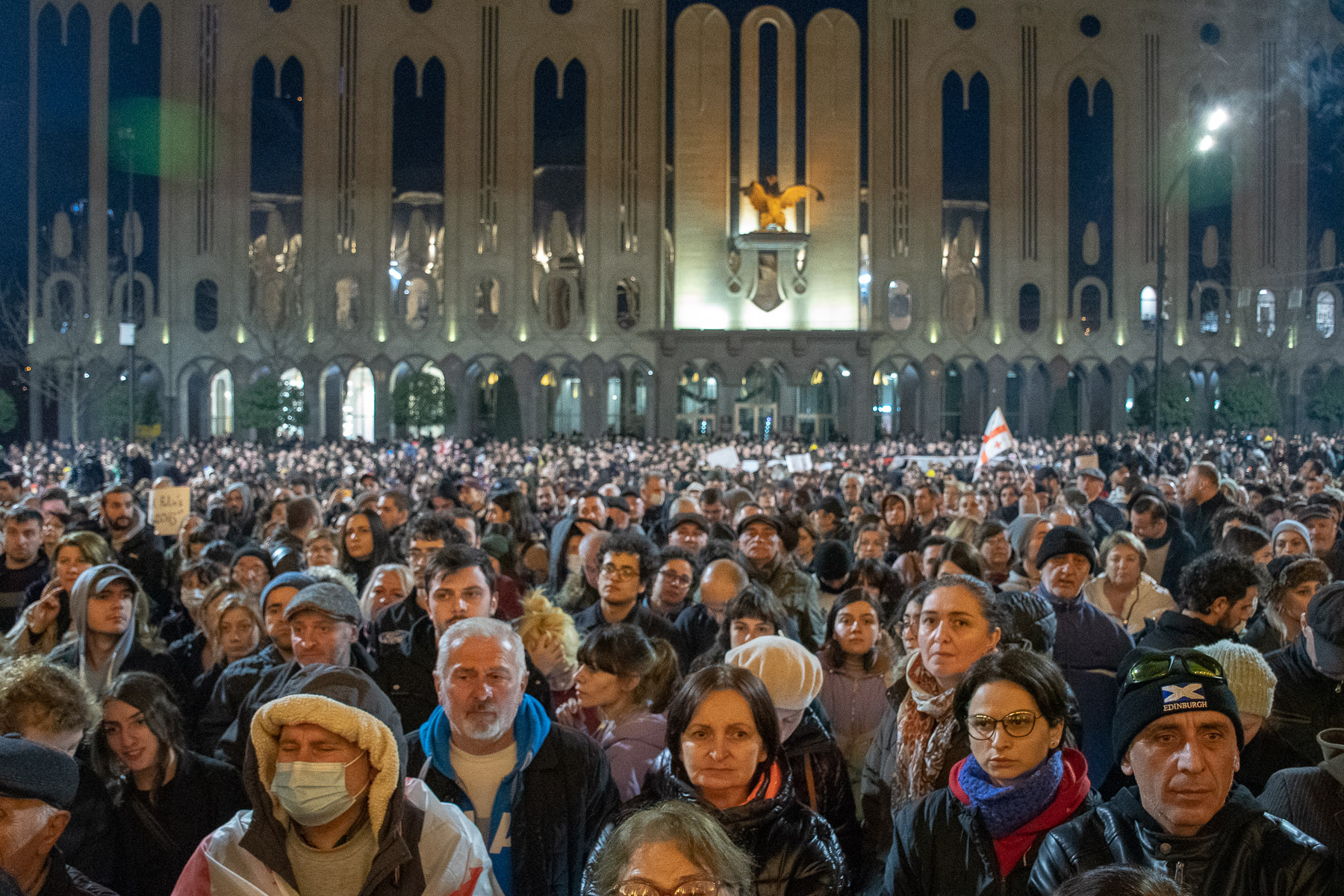
She says she was charged with a public order violation and insulting law enforcement officers. Although she was released soon after, her trial is ongoing.
Despite her arrest, Pirtskhalaishvili was back at the protests the following day.
‘Georgia’s place is in Europe’
The foreign agent bills that were being pushed through by the ruling Georgian Dream Party would have required civil society groups and media organisations who receive funding from abroad to register as ‘agents of foreign influence’ and to submit to monitoring by the government. The bills were similar to one adopted in Russia in 2012, which has since been used to crush civil society there.
‘When [tens of thousands] of people tell the government they should not adopt a law, they should not do it’, 22-year-old Nikoloz Arobelidze tells OC Media.
Arobelidze came to the protests on 8 March after watching riot police suppress the previous night’s demonstration, although he says he realised he might get hurt.
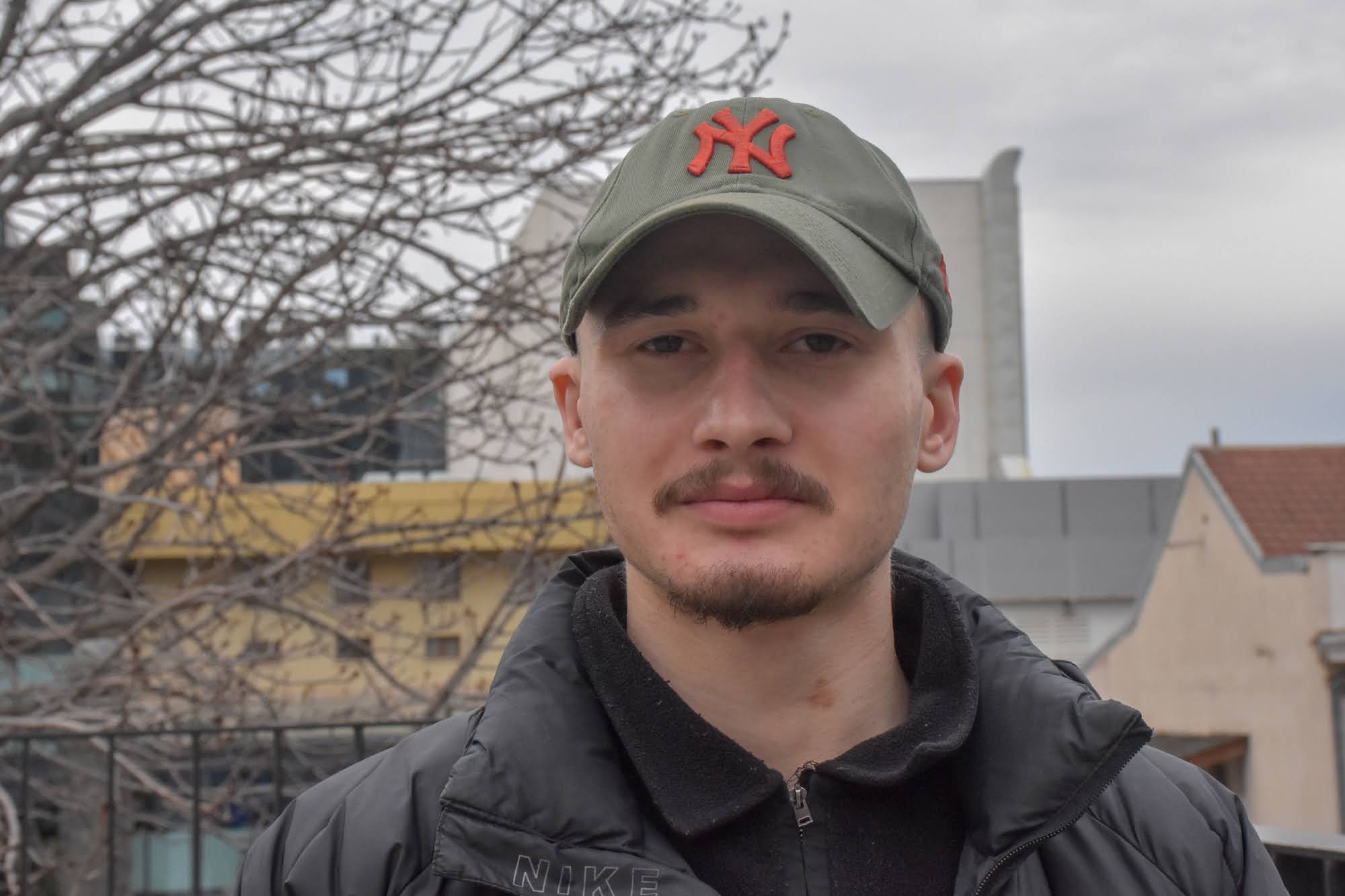
‘I was standing in front of parliament when I heard chaotic sounds, how people shouted: “run, help, they are shooting at us”. I remember at some point how people started to run away’, he recalls.
‘Seconds before that, I thought nothing bad would happen to my friends and me because we were just standing peacefully, but suddenly I saw some [tear gas] thrown, which burned my face, eyes, nose and throat terribly. I understood that I should have breathed less, but because of the panic, it became more frequent’, he recalls, adding that the coughing did not stop for several days.
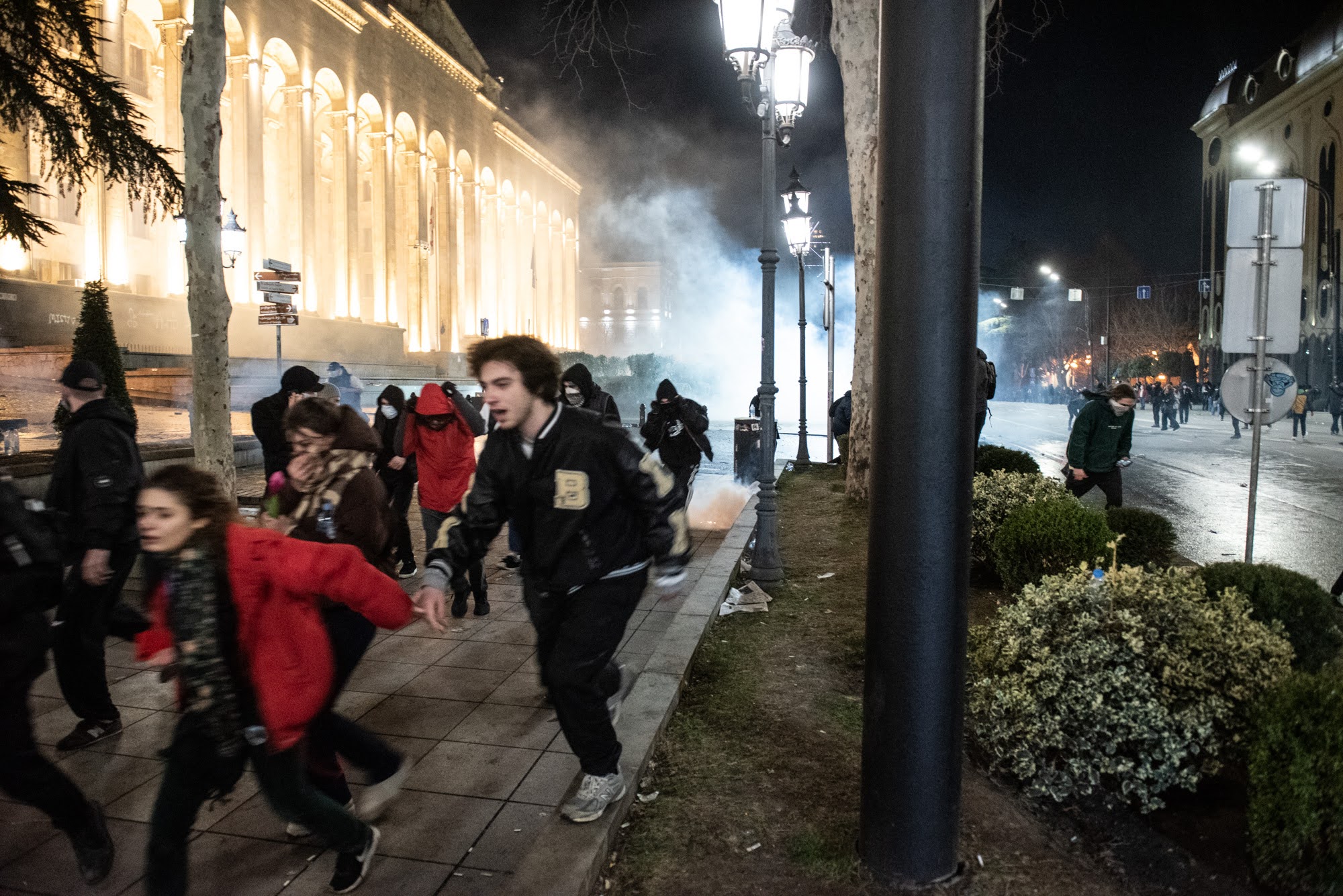
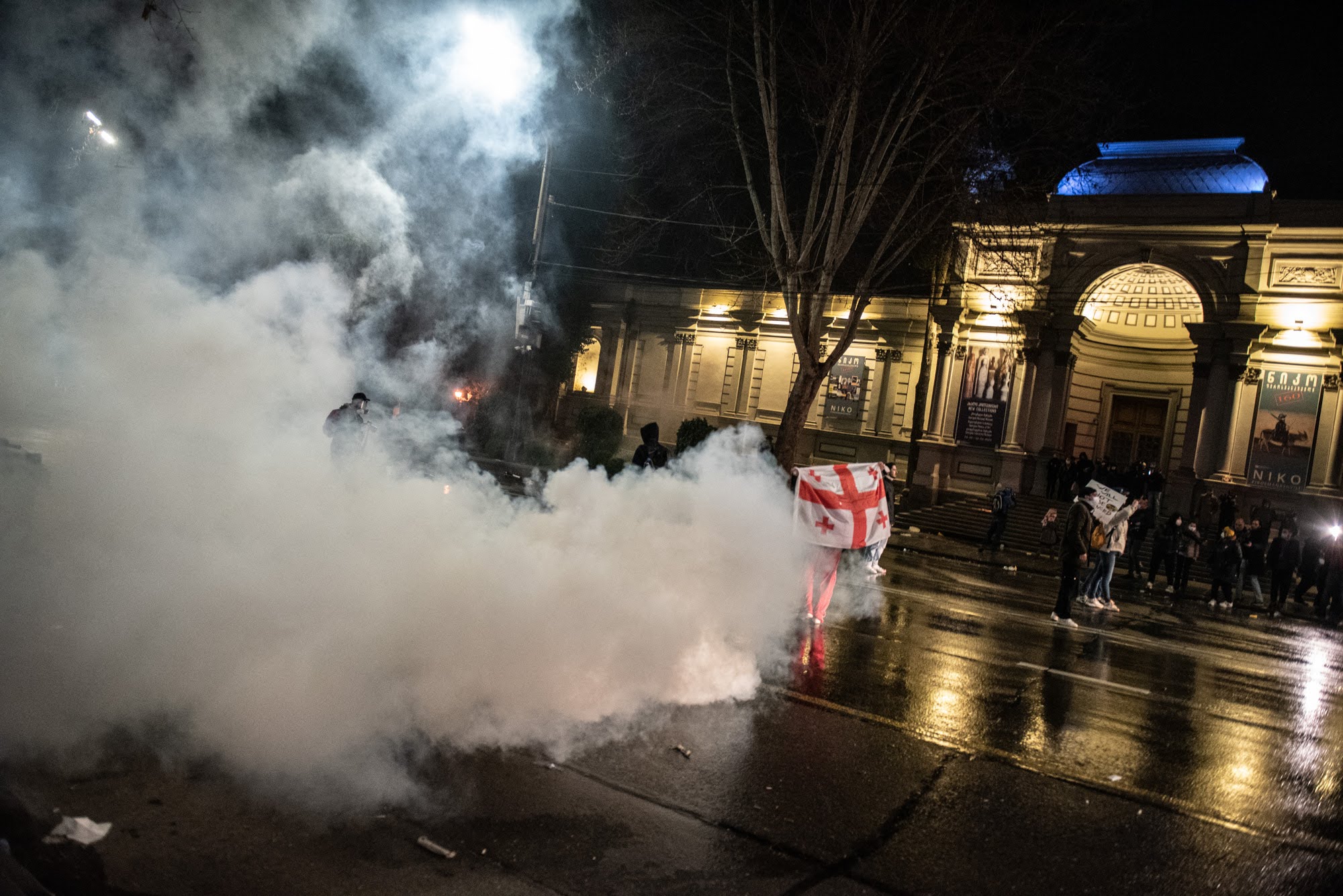
Arobelidze, like many others, said that for young people like him, the protests were about much more than this specific law — the country’s future as a democracy, and its place in Europe were at stake.
‘We stood there and told the government that we want a bright future where we don’t have to fear that the Russians will come and take the country from us, or that their tanks will hit us,’ he said. ‘Everyone thinks that Georgia’s place is in Europe’.
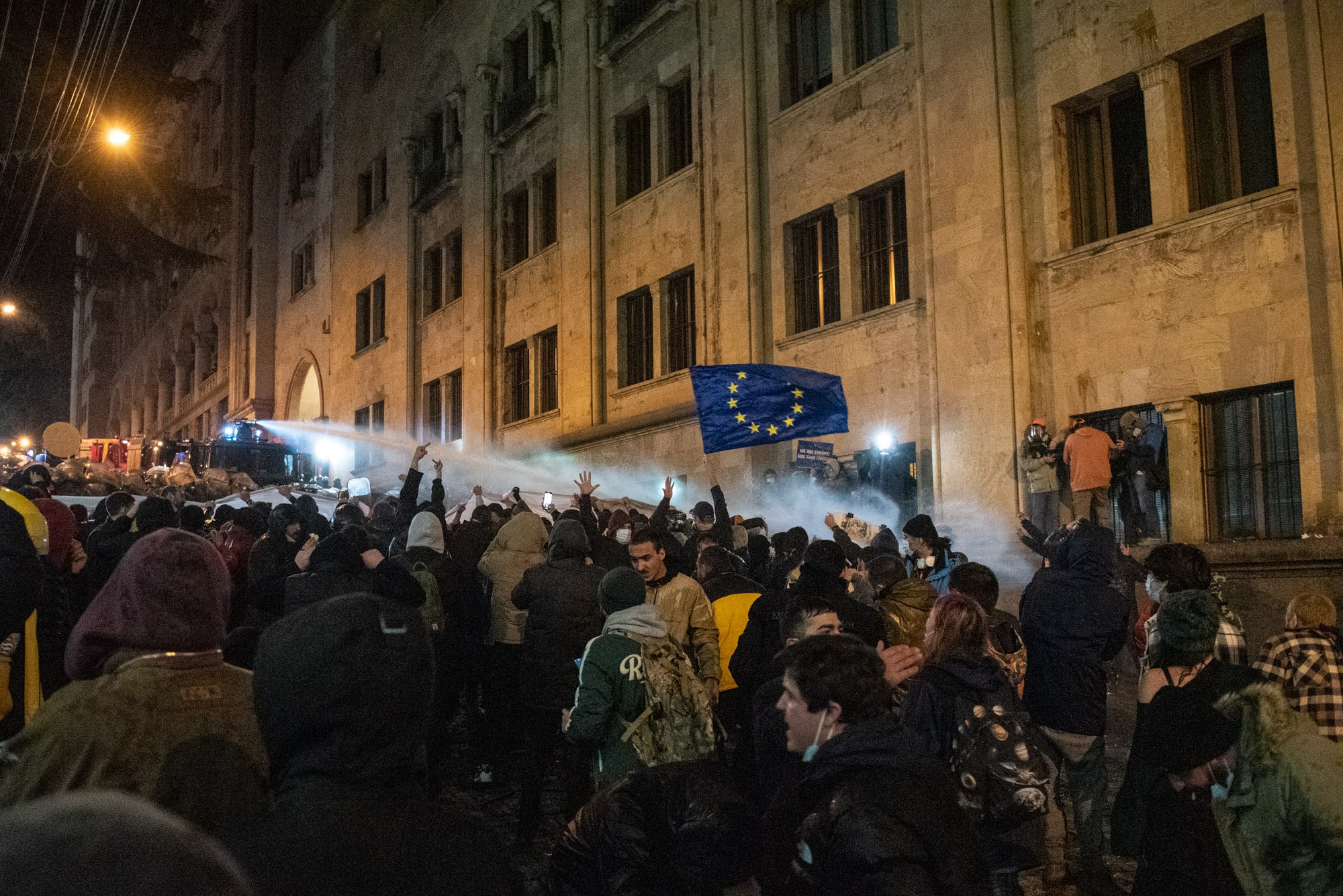
As riot police attempted to break the demonstration on 8 March and to drive protesters away from Parliament, tear-gassed and water cannoned protesters took shelter at the nearby Kashueti Church.
Among them was 23-year-old Gvantsa Seturidze, who had stood in front of the parliament since the protests began the previous week.
Gvantsa says that a special charge characterised the 7–8 March demonstrations, as the voice of a new generation was heard.
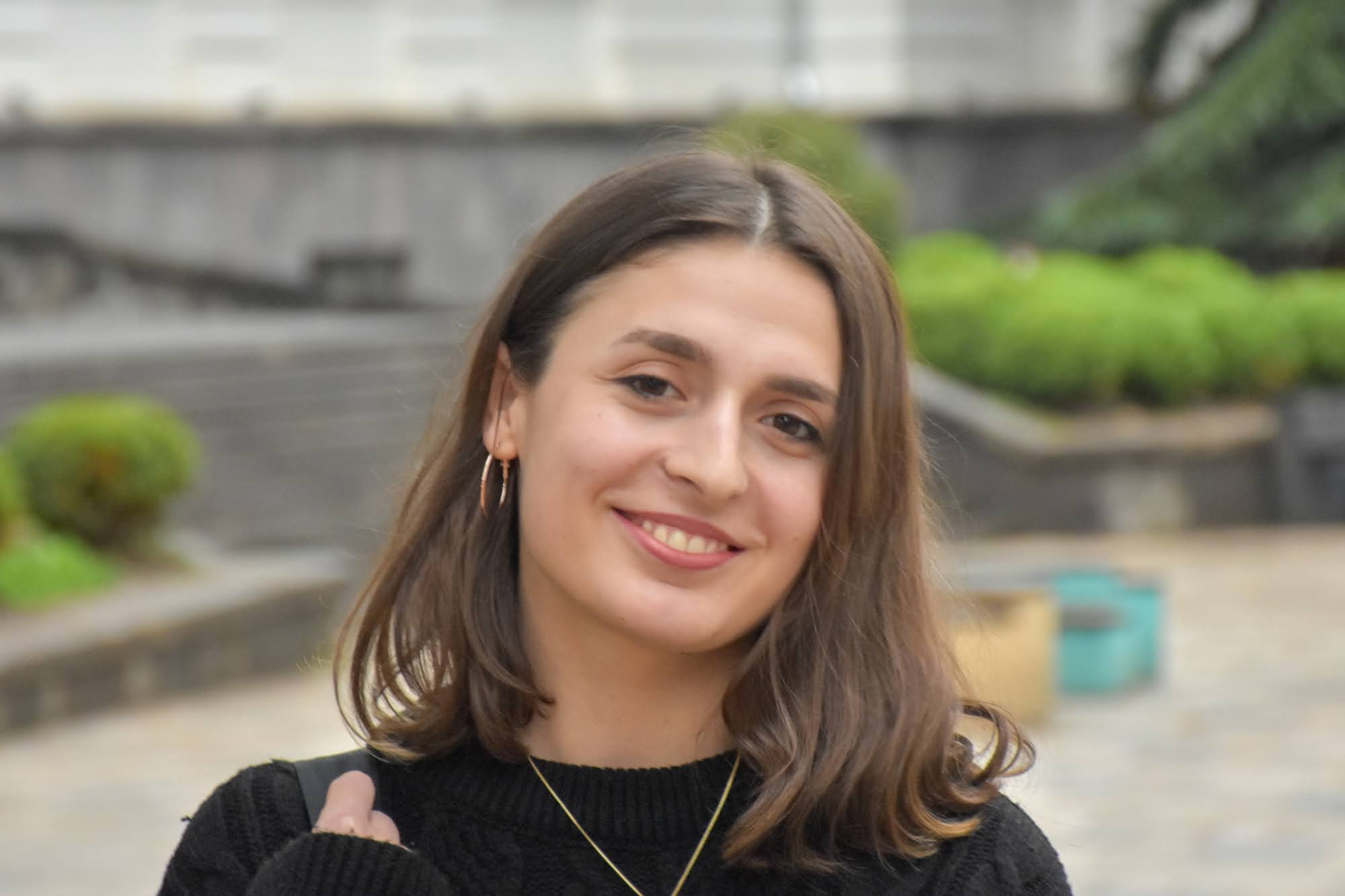
During these days, she highlighted how people helped each other, distributing eye cleaning products, water, and face masks, while others physically helped people find refuge.
She said it was a ‘very difficult period’, but that nevertheless, ‘the young people somehow lightened everything’.
Footage of 17-year-old Salome Kentchiashvili dodging a water cannon was widely shared online. Kentchiashvili was subsequently dragged away by riot police as she shouted: ‘why are you arresting a minor?!’
‘Gen Z’s protest is different. At the rally I saw children handing a police officer pretzel sticks, [and asking] “do you want them?” The police officer [replied]: “Don’t think that I’ll refuse”, and he took it’, she recalls.
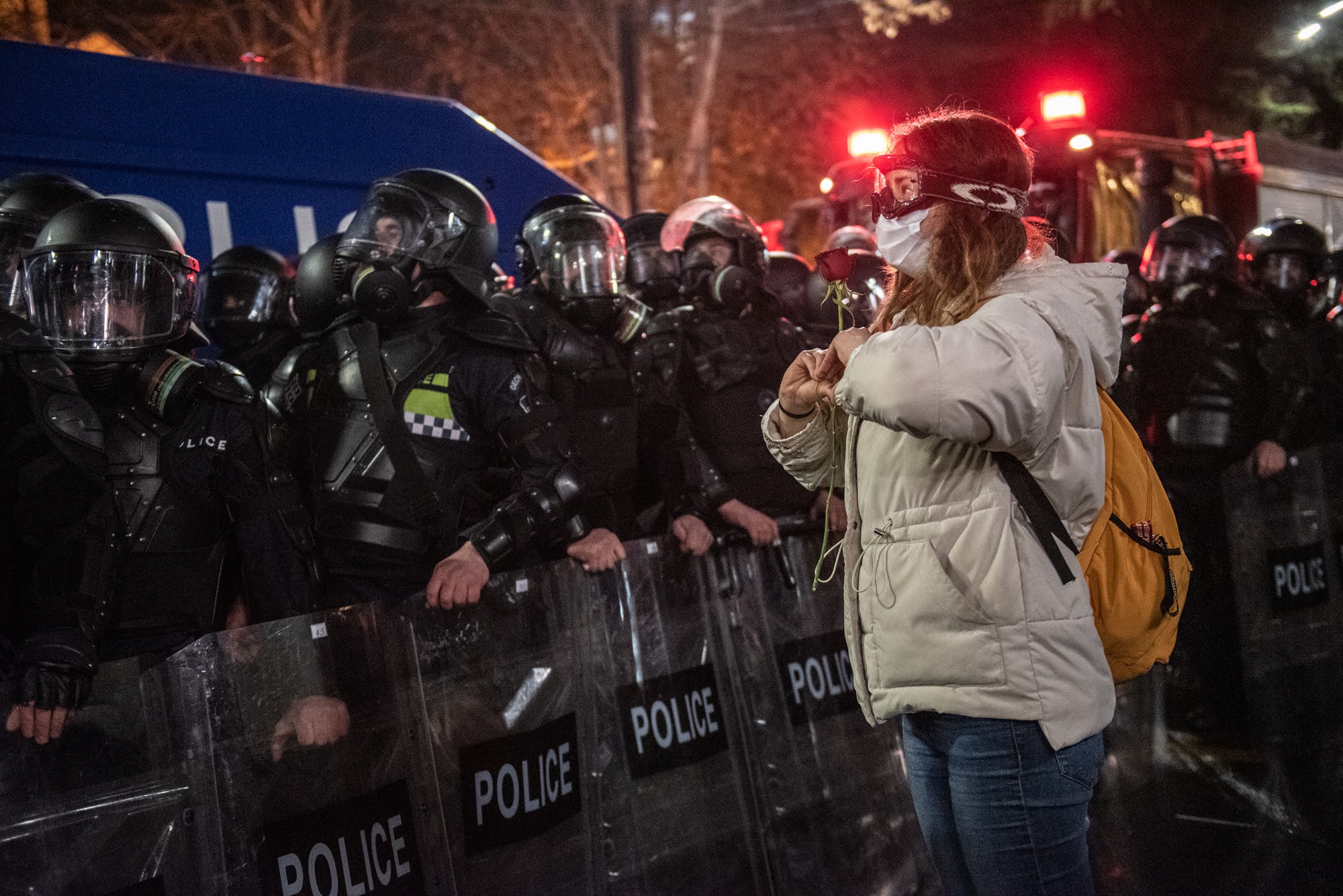
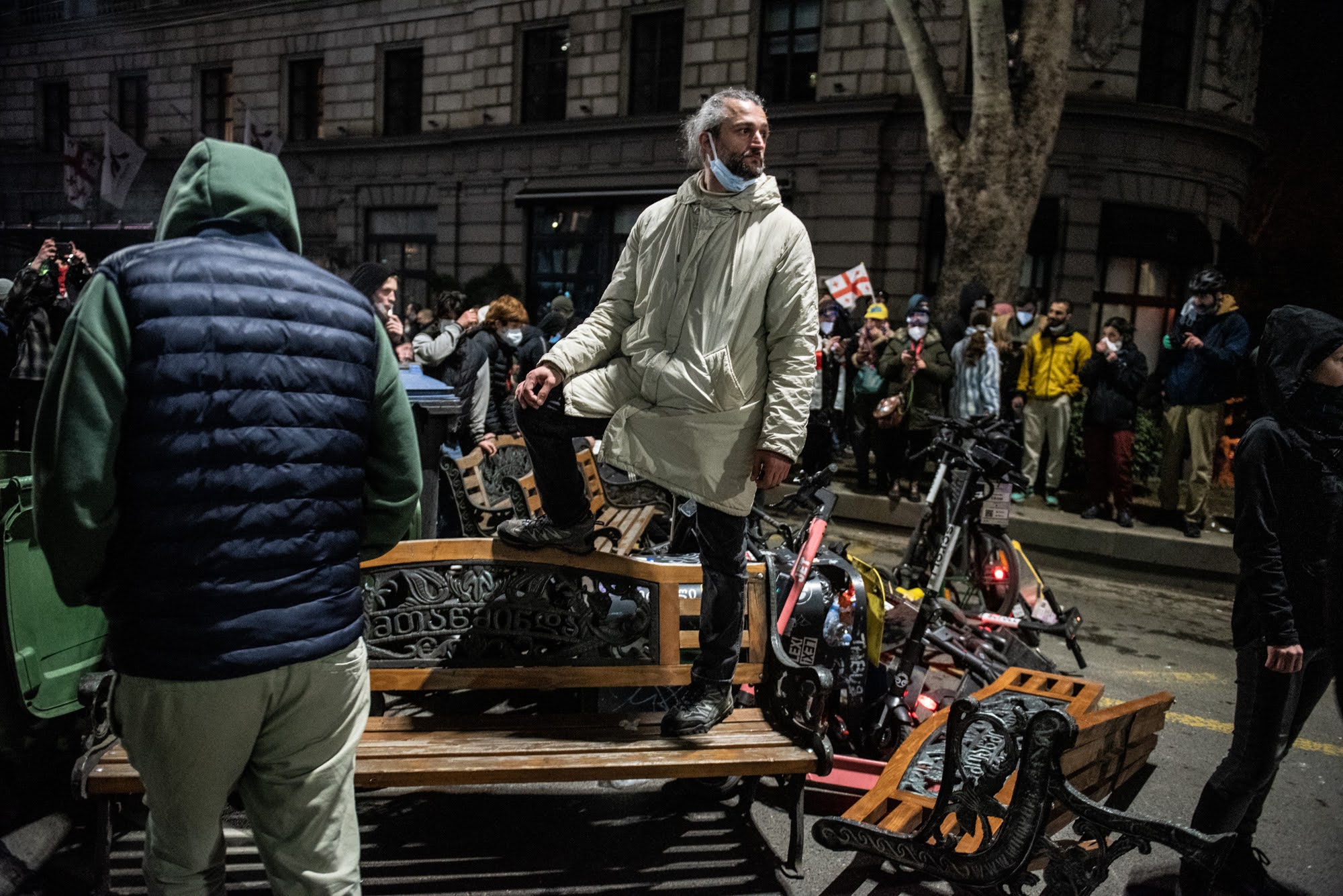
All the young people who OC Media spoke with emphasised that they had stood together with people of all generations during protests in Georgia, with rallies against the draft foreign agent law being no exception. However, the voices of Gen Z and millennials were especially loud at this demonstration.
‘Slay generation, lame government’
The protests were full of sarcastic and satirical posters, images of which were widely spread online. ‘You can’t troll Gen Z’, ‘Hello, is it 112? 78 of us pressed a button, and we are all fucked now’ (a mistaken reference to the 76 MPs who voted for the law), ‘We go to clubs because of the sirens and smoke, you bastards!’, ‘You can’t poison me with your gas cause my ex was more toxic’, the list goes on.
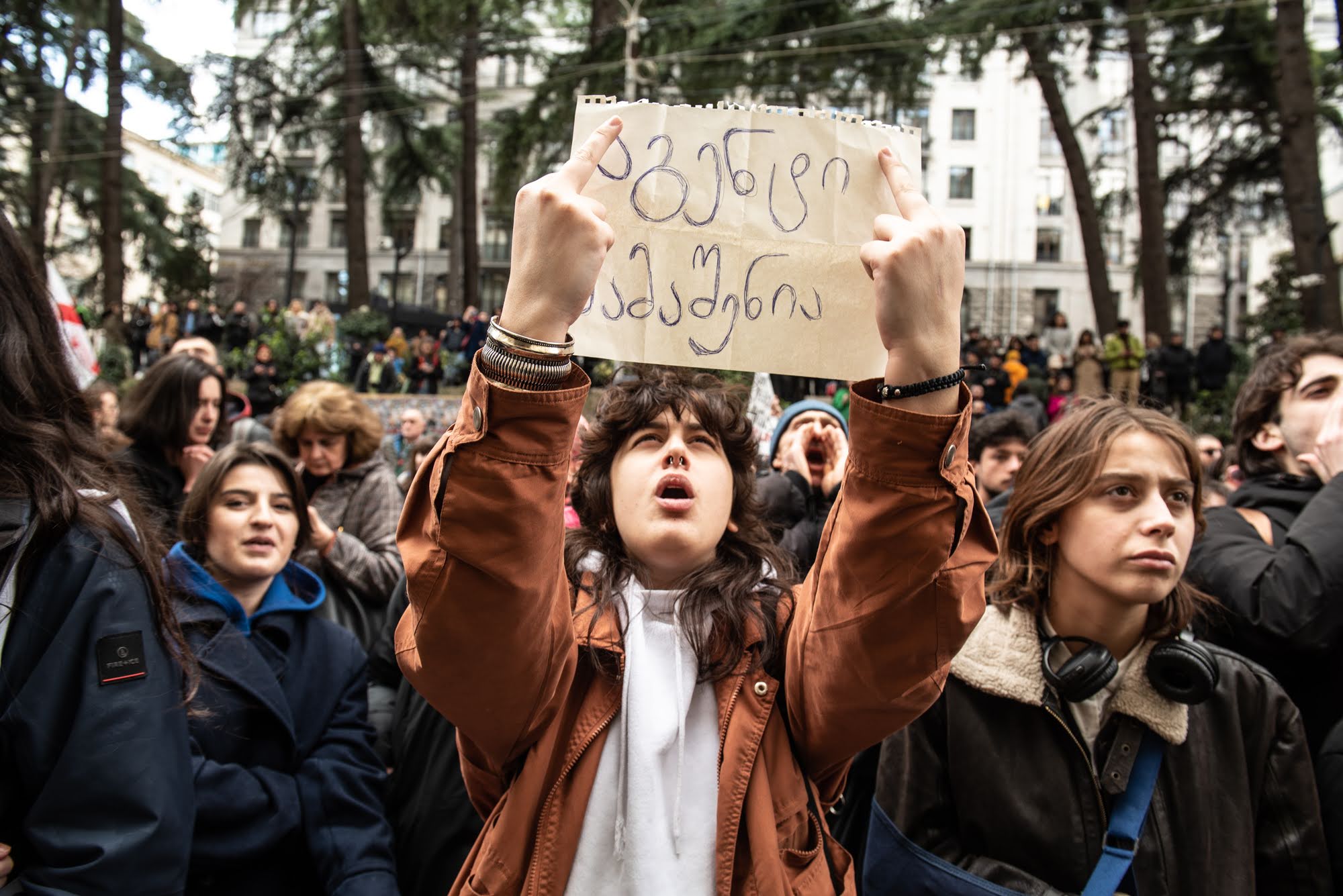
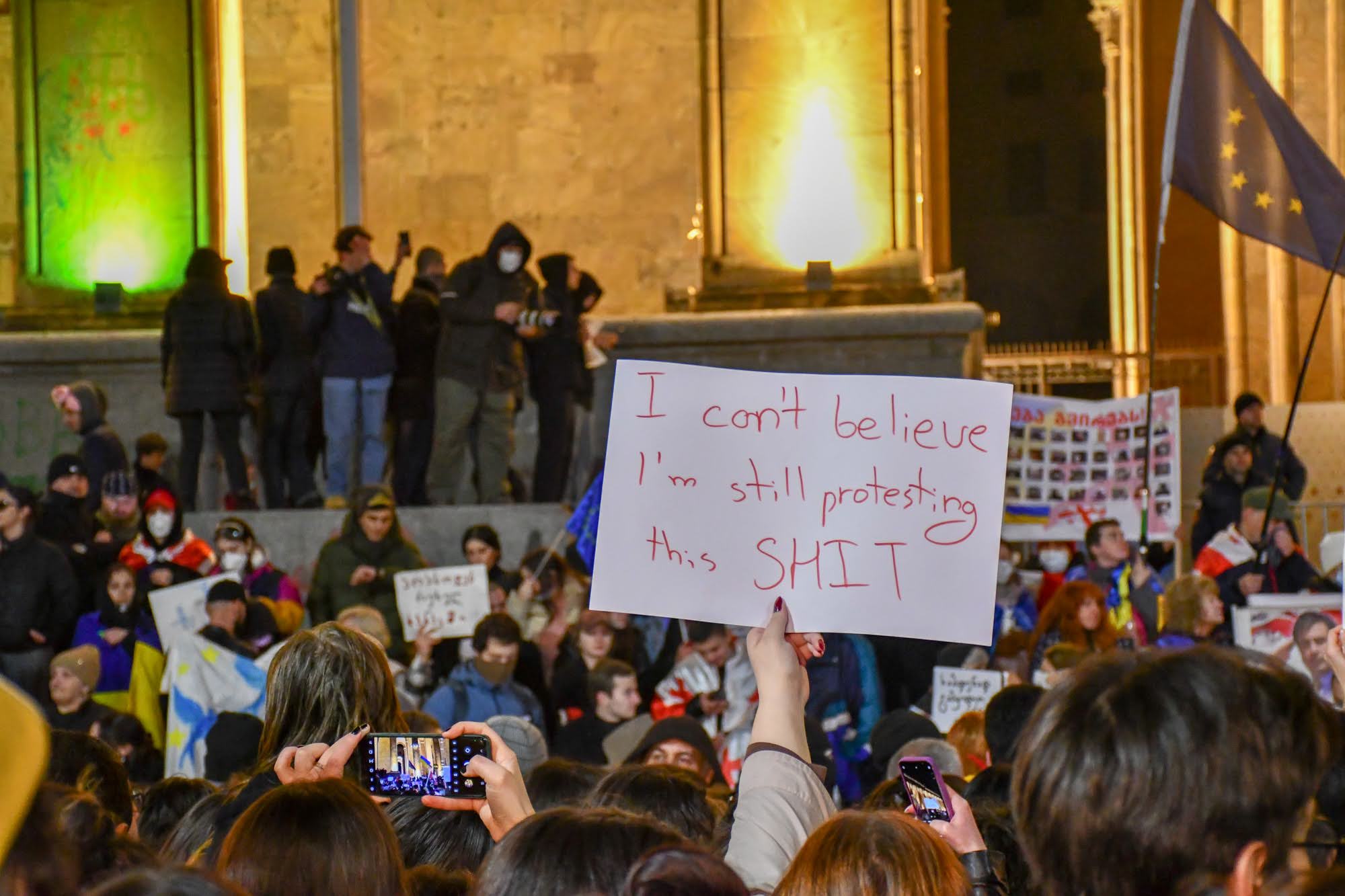
One poster reading ‘SLAY generation, LAME government can’t deceive us’ was widely shared online. Its author, 23-year-old Mariam Kereselidze, tells OC Media that at first, she was reluctant to show the poster at the demonstration, but in the end, decided to take it out.
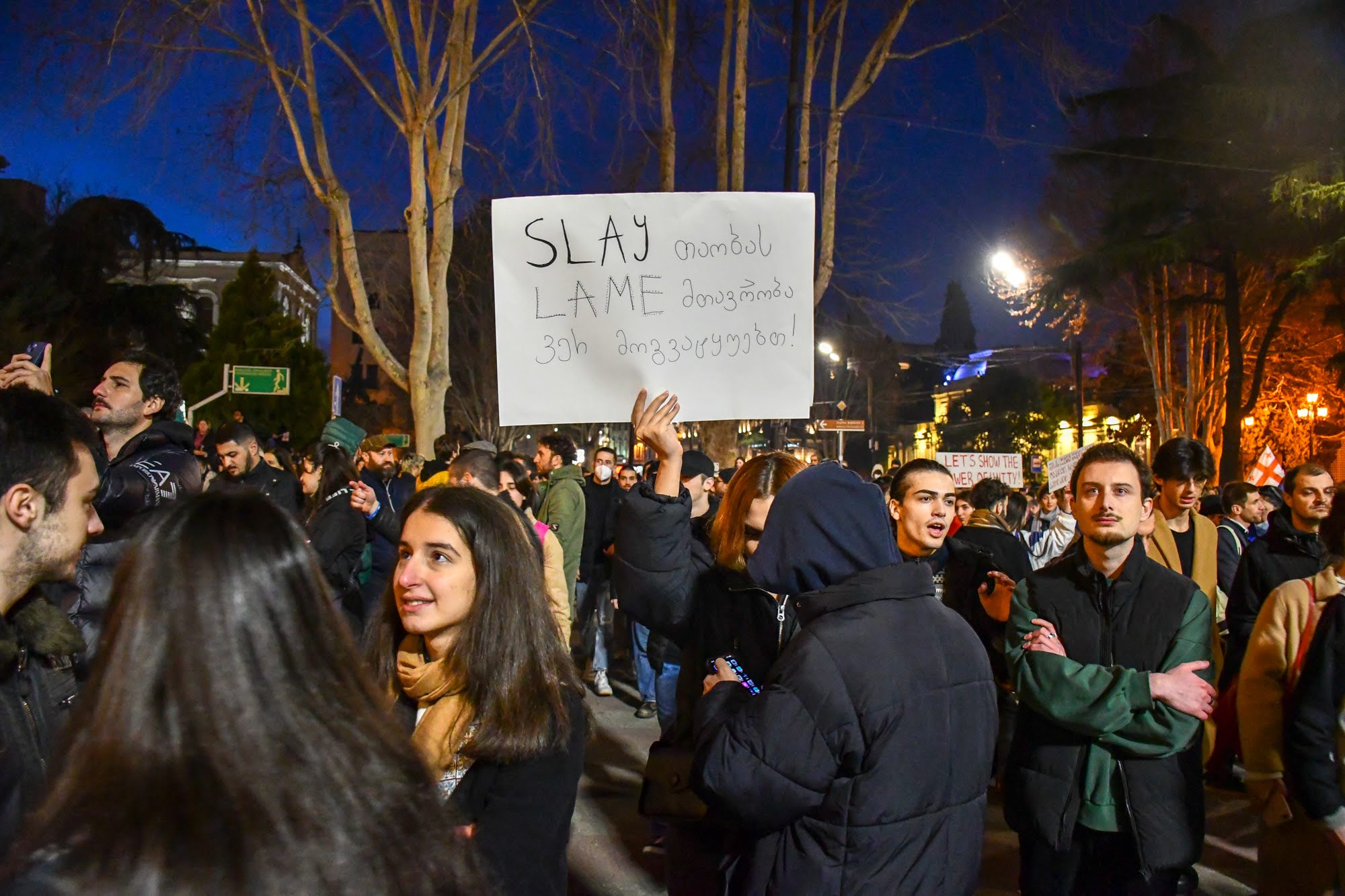
‘I’m a content manager by profession, and I work with texts daily. This is why this message suddenly occurred to me. Many people looked at my poster, smiled, and complimented it, which made me happy. Some people didn’t understand what ‘slay’ or ‘lame’ meant, and [when] I explained it, they laughed’, says Kereselidze.
‘I went to the rally because I believe that a big victory can be achieved with small steps’, she says.
‘The approval of this law would remove us from the European Union forever’, she says.
‘We have lost many battles in recent years, but this one, in my opinion, was decisive.’







